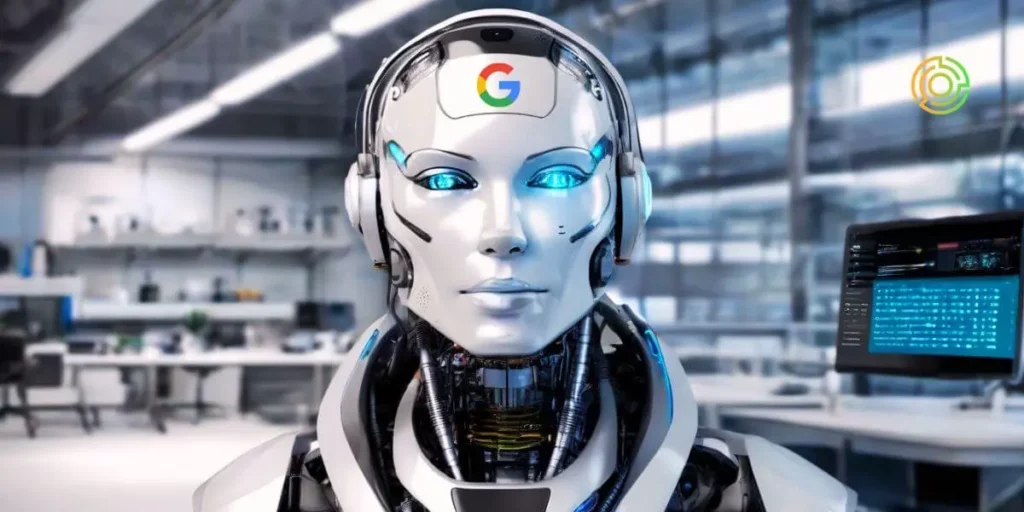In the ever-evolving realm of artificial intelligence, Google’s ambitious journey into advanced chatbots has hit a temporary roadblock. The much-anticipated successor to Bard, Google’s current chatbot, is undergoing prolonged development, putting its competition with OpenAI’s ChatGPT on hold.
Delayed Launch of Google’s Chatbot
Recent revelations from The Information indicate a shift in the original launch window, extending the wait for Google’s new chatbot. Initially expected in November, the official release is now slated for early 2024, leaving users in anticipation.
New: Google reps have told customers and business partners they wouldn't have access to Gemini until early next year, after previously saying the company would roll out its new AI model as early as Novemberhttps://t.co/YyLMircsbr
— Jon Victor (@jon_victor_) November 17, 2023
Implications of the Delay
This delay poses a significant challenge for Google in competing with ChatGPT. OpenAI’s chatbot has already solidified its place as the go-to AI for millions worldwide, creating a window of opportunity for further advancements and user adoption.
Details on Google’s Gemini Project
Behind Google’s AI aspirations lies the Gemini project, tasked with ushering in the next generation of chatbots. This initiative aims to replace the current Bard, a chatbot that, while a strategic move for Google, pales in comparison to the capabilities of its competitors.
Challenges Faced by Google
Google’s struggle to keep pace with OpenAI has been evident. Despite over a decade of development, the rapid evolution of OpenAI’s Sam Altman-led artificial intelligence has necessitated a hastening of Google’s own advancements, particularly in response to the GPT model.
OpenAI’s Continued Innovation
In the race for AI supremacy, OpenAI continues to push the boundaries of what chatbots can achieve. The recent unveiling of ChatGPT Turbo, capable of absorbing the equivalent of a 300-page book in an instant, showcases the relentless progress in AI.
Gemini’s Role in AI Evolution
Gemini, Google’s project behind the new AI, carries the weight of surpassing ChatGPT. The delay reflects Google’s commitment to refining their AI to match or exceed the power of the established ChatGPT.
The Bard’s Limitations
While the Bard was a strategic release to fend off accusations of tardiness in the AI race, its limitations are apparent. The forthcoming chatbot aims to overcome these constraints and position Google as a formidable force in the AI landscape.
Competition Dynamics
OpenAI’s ChatGPT has become synonymous with AI for users globally. The delay in Google’s offering provides OpenAI with valuable time to further entrench its dominance in the AI community.
Google’s Strategy Moving Forward
Google faces the challenge of managing user expectations during the extended wait. The company’s strategy must involve not only catching up with ChatGPT but surpassing it in terms of functionality and user experience.
The Race for AI Supremacy
The competition between Google and OpenAI extends beyond a rivalry; it’s a race for AI supremacy. The company that can provide the most powerful and user-friendly AI will likely dictate the future of human-AI interaction.
Conclusion of the Wait
As users eagerly anticipate Google’s advanced chatbot, the delay heightens the suspense. The AI community is poised for a potentially game-changing release, and the dynamics of AI interaction may soon witness a transformative shift.
Comparative Analysis
A quick comparison between ChatGPT and Google’s upcoming chatbot reveals a nuanced landscape. Factors such as processing speed, contextual understanding, and user adaptability will play a crucial role in users’ preferences.
User Expectations
Managing user expectations is critical for Google as it navigates the extended development timeline. Clear communication about the improvements and innovations in the upcoming chatbot will be essential to maintain user interest.
The Future of AI Interaction
Looking ahead, the advancements in AI, whether from Google or OpenAI, will redefine how humans interact with technology. These advanced chatbots mark the beginning of a new era, where AI seamlessly integrates into our daily lives.
Conclusion
In conclusion, the delayed arrival of Google’s advanced chatbot sets the stage for an intriguing battle for AI supremacy. While ChatGPT currently enjoys a significant lead, the wait for Google’s offering adds an element of anticipation to the evolving narrative of artificial intelligence. The future promises not just a competition between companies but a transformation in how we perceive and interact with AI.
FAQs
When can we expect Google’s new chatbot to be released?
Google’s advanced chatbot is anticipated to be officially launched in early 2024.
How does ChatGPT Turbo differ from previous versions?
ChatGPT Turbo showcases rapid progress in AI, allowing it to process and contextualize information at an unprecedented speed.
What challenges has Google faced in developing its AI to compete with ChatGPT?
Google has struggled to keep pace with OpenAI’s advancements, prompting an acceleration in their AI development efforts.
What is the significance of the Gemini project in Google’s AI evolution?
The Gemini project is designed to replace the current Bard chatbot, aiming to elevate Google’s AI capabilities to compete with ChatGPT.
How will the delayed release impact Google’s position in the AI market?
The delay provides OpenAI with an extended period to solidify its position as a leader in the AI community, potentially influencing user preferences.
Follow us on our social networks and keep up to date with everything that happens in the Metaverse!
Twitter Linkedin Facebook Telegram Instagram Google News Amazon Store
